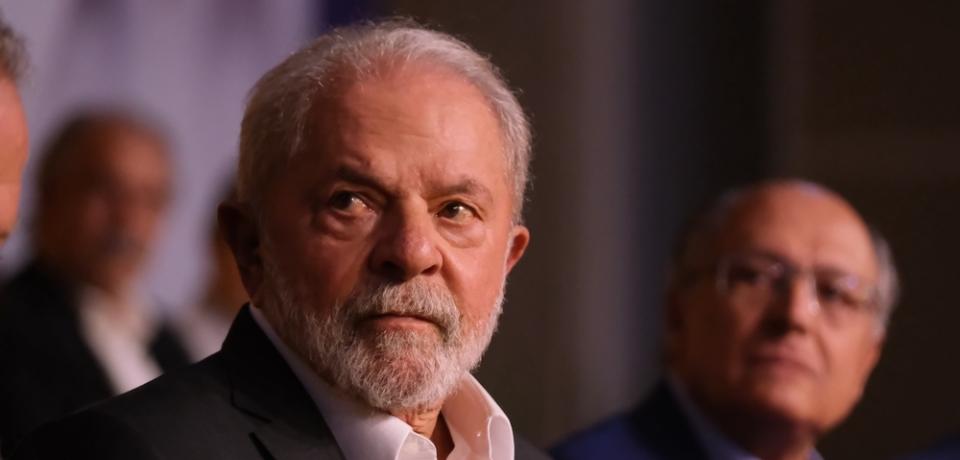
A new lease of life for the Brazilian left, which will have to make up for lost time, because there will be no second chance.
On 30 October 2022, at the 45th minute of the second half, Luís Inácio Lula da Silva (PT) was once again elected President of the Republic of Brazil, after weeks of political tension and anxiety in the wake of the first round. An inevitable worry because, since the legal-parliamentary coup of 2016, what we have witnessed is a succession of defeats for the progressive camp.
Fighting to secure Lula's nomination
The victory is bitter, because the far right has grown institutionally, electing parliamentarians and governors, in addition to the fact that Bolsonaro sees himself consolidated as the leader of the opposition at the national level. Now we have to fight to guarantee Lula's nomination, despite Bolsonaro's attempted coup. This will open up a wide window of challenges and opportunities, with a scope and content unseen since the June 2013 days1 .
The greatest of these challenges will be to face the opposition, composed of professional politicians from the Centrão and extreme right-wing sectors, influential and armed, and at a level of provocation never seen in the history of the New Republic. Therefore, the first challenge for the left will be to guarantee Lula's presidency in the coming years, so that he is not removed by a legal-parliamentary coup, like Dilma Rousseff (PT) in 2016, or is the victim of a coup d'état, or even a physical assault.
The realization of this challenge is linked to the political space that we can wrest from Lula during the exercise of his power and that, dialectically, will energize a tired, hungry, disillusioned and unemployed social base. Where could a mass anti-system movement on the left go?
In 2019, there was the student uprising against Bolsonaro's education policies, and the mobilizations against the destruction of the Amazon. In 2020, in the midst of the Covid-19 pandemic, the anti-fascist protests of the Brazilian black movement, organized supporters and ubiquitous workers led to rather victorious electoral campaigns for the progressive camp. In 2022, we had an electoral campaign that raised the vote for Lula in the first and second rounds; in the latter stage, it built up grassroots nuclei, given the urgency of blocking Bolsonaro, and electing Lula.
Street mobilization is necessary
The mobilization of the second round, in an "all or nothing" style, offered the left the opportunity to reorganize itself from demobilized sectors, but which saw in the campaign for Lula the moment to regroup, even temporarily. Of these groups formed in support of the elected president, only a part will remain active, but if we propose concrete work anchored in the reality of the territories, it will be possible to organize these people. These collectives could link Lula's most progressive proposals with local demands, discussed during the campaign, and oppose the right-wing and extreme right-wing governments that are springing up all over Brazil [at state level].
The new president will therefore need the mobilization of the masses to stay in office. However, Lula is above all a manager of Brazilian capitalism. How he will be willing to enter into conflict with the bourgeoisie that supports Bolsonaro - or that has not openly opposed his government - is one of the key issues in the short and medium term.
The weight of the international situation
Meanwhile, the international situation is weighing in two opposite directions. In Latin America, with the election of Gustavo Petro in Colombia and Gabriel Boric in Chile, the left is showing a greater understanding of the discussion around the climate emergency, with the former's speech at the UN General Assembly in September 2022 being a highlight. This could push Lula to defend the Amazon more vigorously and to challenge not only illegal deforestation, but also that which is theoretically legal, despite the proximity of the point of no return, i.e. the point at which the Amazon will enter a spiral of destruction that will lead to irreversible damage to human life on Earth.
On the other hand, even before Lula's investiture, at the end of this year 2022, Europe will experience a possible shortage of fuel for domestic heating in winter, in this case gas, of Russian origin, in the context of Russia's attack on Ukraine, which is likely to sharpen tempers and boost the far right, reinforced by the rise to power of the so-called "post-fascism" in Italy in the last elections.
A new lease of life for the left
In Brazil, therefore, there is a new lease of life for the Brazilian left, which will have to make up for lost time, because there will be no second chance. We need to learn from the best experiences of the grassroots organization of the Movement of Homeless Workers (MTST), but also from the solidarity campaigns against hunger during and after the Covid-19 pandemic in Latin America, from the agro-ecology and poison-free food movements, from the youth for the climate, from the grassroots groups of parties and para-parties that organize around territories - as, for example, the experiences of the People Without Fear Front in the city of Sao Paulo.
Let's not fool ourselves: this space will not be handed to us on a platter. The eventual resistance of Lula and his government to the questions posed by anti-racist, feminist, anti-LGBTIphobic, climate emergency struggles, and to economic demands that conflict with Brazil's historical social organization, will be decisive. The Centrão guarantees votes in Parliament, but does not mobilize large sectors; the far right does, and we can do it again. In any case, Sunday night was a night of celebration of the Lula III government, of a new hope for the Brazilian left.
São Paulo, 30 October 2022
Carlos N. is a member of Insurgência, a current of the PSOL.
Translated by fourth.international.